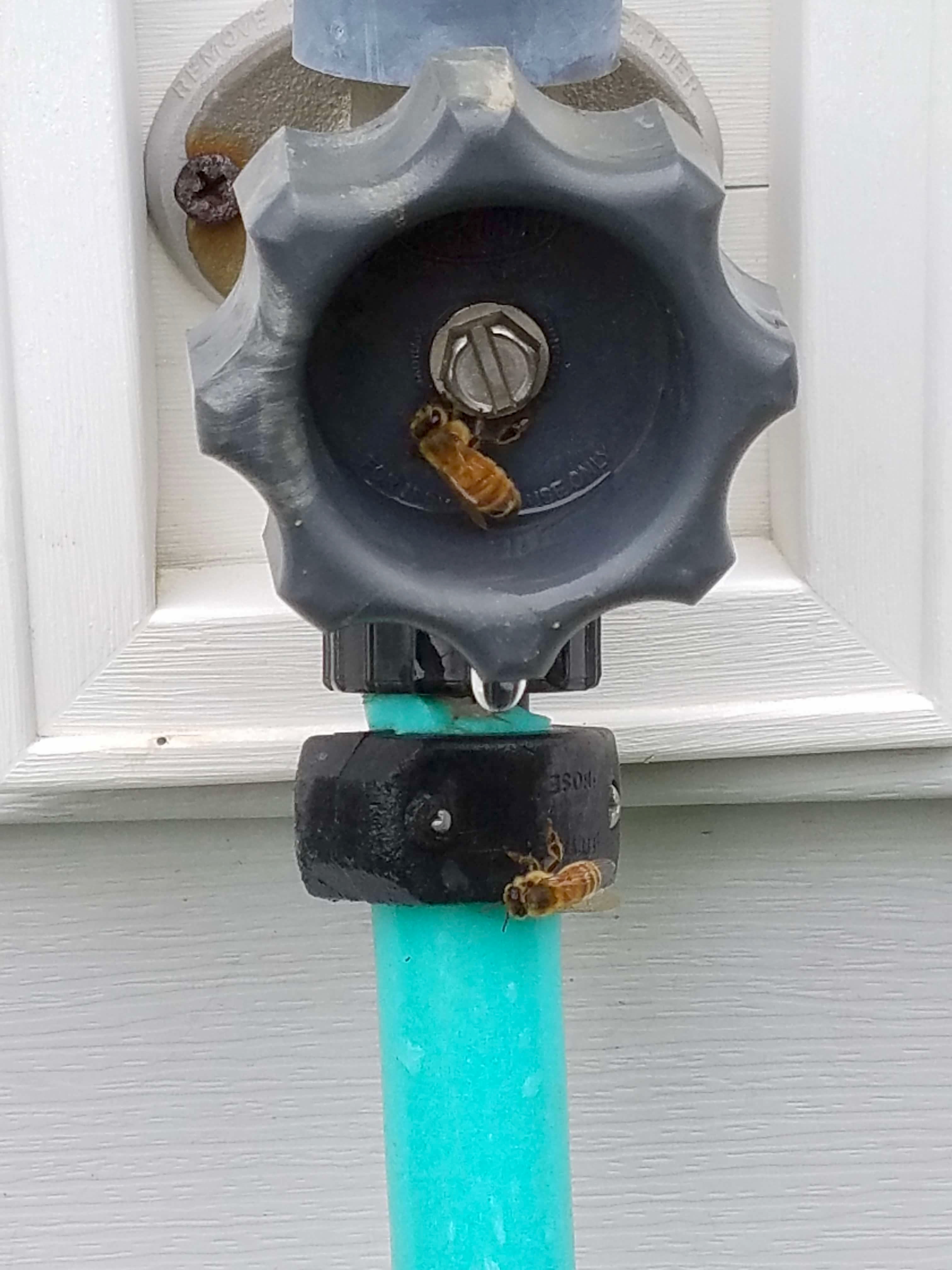- Plant diverse types of flowers in your landscape. Try to make sure you have something in bloom from April through the hard freezes of early November. The most critical time for the bee is early spring, the summer dearth usually in July, and late fall.
- Use clover in your grass seed mix, or allow it to come into your lawn naturally.
- Celebrate dandelions in spring and don’t mow until they’ve bloomed. Avoid applying pesticides to your lawn when clover or dandelions are in bloom.
- Plant high nectar and pollen producing shade trees like basswood or linden, maples and willows where appropriate.
- Avoid purchasing plants which may have been treated with systemic insecticides which could harm bees when they collect the plants nectar or pollen. Purchase plants that are labeled as neonicotinoid free, or ask your local garden center about bee-friendly plants.
- Purchase locally grown or USA produced honey. There have been reports that some imported honey contains cane or corn-based sugar. While the USDA tests imported honey, they cannot test every batch. Make sure you are buying true bee-friendly honey by purchasing only USA produced honey.
- Limit the use of insecticides and herbicides on your lawns and landscapes, especially if anything in the area is in bloom. If you are spraying, do so at night, when the bees are not flying. Let your neighbors who have bees know so they can close them up when you are spraying.
- Work with your town or county governments to make publically owned spaces more bee friendly.
- Fall asters (New England asters) and goldenrods are two of the most important fall flowers for honey bees and bumble bees. They provide some of the last fresh food they will eat all year. Keep these plants in flower by delaying the mowing of them until the the tops die down after a hard freeze. Better yet, leave them over the winter to provide seeds and habitat for birds and other wildlife.
- Grow a cover crop like buckwheat or phacelia. Both produce massive amounts of nectar that bees love. Once in flower you can delight in the hum of the field, alive with healthy, hungry bees.
Download File














.jpg)